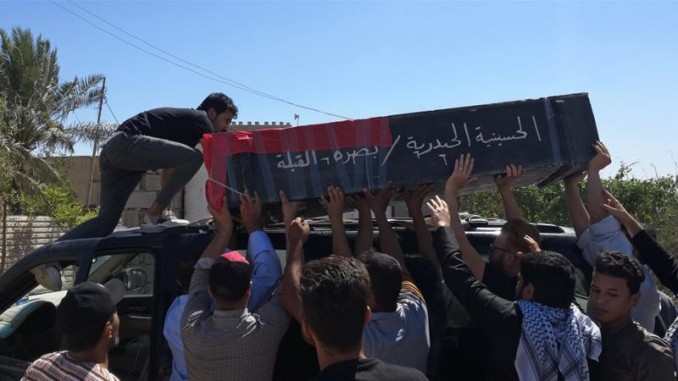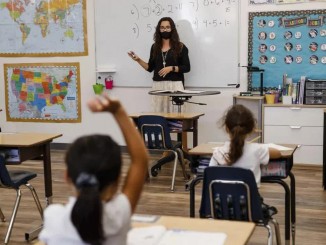
Mass protests have broken out again in Iraq after the nomination of a new prime minister, Mustafa al-Kadhimi. He is the former intelligence chief, and his appointment enraged ordinary Iraqis. In spite of COVID-19, they took to the streets.
Calls immediately went out for protests against this appointment. Last year, Iraq was gripped by major demonstrations calling for a complete overhaul of the political system. These were faced with repression by military and police forces, an effort led by officials who included the now prime minister al-Kadhimi. These demonstrations had been temporarily silenced in January by the increased military tension between Iraq and Iran and now the COVID-19 pandemic has presented a further obstacle. But the appointment of al-Kadhimi was one step too far. Ali Hussein, a 22-year-old student who joined the protests in Baghdad’s Tahrir Square said, “Kadhimi represents the system we want gone. We demand a complete overhaul of the political system and an end to the corrupt political elite who put him in power.”
Since Saturday, May 9, demonstrations have started up again in the capital, Baghdad, and several other cities, especially in Iraq’s south, including Nasiriya, Basra, Al-Kut and Diwaniya. In the capital, hundreds of demonstrators marched and tried to occupy bridges and public squares. In Basra, protesters went further, demanding the removal of the oil-rich province’s governor, Assad al-Eidani. “From Basra, we declare that the Iraqi state has completely lost its credibility in the eyes of its people,” said a statement by the demonstrators in a video that circulated over social media. “It (the state) has become nothing more than a network of support for oppressive militias and corrupt political parties.”
The protests are continuing in spite of al-Kadhimi’s attempts to make some concessions. He has ordered the release of detained anti-government demonstrators, and compensation for the families of hundreds of victims who died since protests began last October. In fact, over 600 protesters were killed. Al-Kadhimi has also promised to dispense pensions, overturning a decision by the previous administration to freeze state spending, including civil servants’ salaries and pensions – income that one-fifth of Iraqis rely on heavily.
Iraqi novelist Sinan Antoon told Al Jazeera, “The protesters are not fooled by Kadhimi’s cosmetic gestures. They know all the tricks of this political regime and Kadhimi is just the most ‘updated version.’”
At the same time, with the price of oil having plummeted, this government is under tremendous financial pressure to cut back on social services, and carry out an intense austerity, making the population even poorer. According to the official figures, Iraq earned only about one-sixth of its average oil revenues in April. This has had a drastic impact, with unemployment already massive.
These attacks on the Iraqi working class are part of a worldwide attack on workers’ health, safety, and standard of living. It is our duty to stand in solidarity. If Iraqi working people learn that the only force that they can depend on for the humane restructuring of society is their own organization and power, the power of the working class in Iraq and internationally, then they may take control and find a way out of the hell created by the imperialist powers, especially the U.S. This would be an example for the whole world, and the hope it generates may be more contagious than the coronavirus.
Featured image credit: Reuters
One Iraqi demonstrator was killed and four others were wounded during continuing anti-government protests in Basra.




